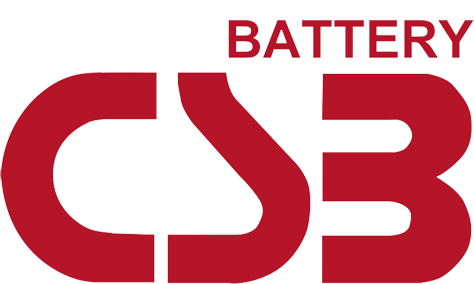The Critical Impact of UPS in Data Centres
Welcome to a deep dive into the crucial role of Uninterruptible Power Supply (UPS) Systems in data centres. In a world that thrives on digital data, UPS systems have advanced from an optional element to a veritable necessity in ensuring seamless data centre operations.
Data centres require an uninterrupted power supply to function optimally, as they constantly store and process mountains of digital data. A minor blip in power could lead to significant data loss and disrupt business continuity—an error too costly for businesses to bear.
In the forthcoming sections, we will explore the importance and primary functions of UPS systems, the different types available, how they work, and how UK data centres are adopting these systems. That's not all; we'll address the challenges presented by UPS system implementation and gaze into the future trends of this indispensable asset.
Before we delve deeper, it's essential to note that the information provided in this article is based on our research and experience in the field, but every data centre and UPS system has unique characteristics. With this in mind, let the exploration begin!

The Importance of Uninterruptible Power Supply Systems
A power outage can be more than just an inconvenience; it may pose significant risks to your data, halt operations, and have a heavy cost impact if not managed properly. That's where Uninterruptible Power Supply (UPS) systems come to the rescue! These ingenious devices are vitally essential for ensuring a continual power supply, preventing data loss, and maintaining business continuity.
Ensuring Continual Power Supply
In many workplaces and businesses, a loss of power can bring operations to a halt. Suddenly, there's no light, no functioning machines, no computer systems to rely on. So, what's the saviour here? Yes, you've guessed it – the Uninterruptible Power Supply systems.
A UPS system ensures a constant power supply to your essential equipment. It steps in the moment the power wavers or goes out, keeping your machines running and your employees working. Let's look at the benefits:
- Immediate response to power cuts
- Protection against power surges
- Continual operation of essential systems
These benefits translate into seamless operations, even in the face of abrupt power interruptions.
Preventing Data Loss
Imagine it's 4:59 PM on a Friday, and you're just about to hit 'Save' on your work for the week when – bam! - the power cuts out. UPS systems function as your last defence against such scenarios, providing you with precious minutes to save your work and safely shut down your system.
Though a few minutes might not seem like much, they can save you hours of redoing work or, worse, managing loss of critical data. A UPS offers:
- Backup power for short-term use
- Protection against sudden system shutdowns
- Safety net for unsaved data
Thus, safeguarding your data from the uncertainties of electrical supply.
Maintaining Business Continuity
In the digital age, maintaining operations despite power interruptions can make all the difference to your business reputation. Clients value businesses that can deliver reliable services, regardless of external conditions. A well-integrated UPS system can aid you in business continuity by:
- Ensuring continuous functioning of key operations
- Sustaining critical infrastructure in power outages
- Providing time to activate backup generators
In essence, a UPS system keeps your business going against unexpected, potentially disruptive power interruptions.
While it's impossible to anticipate or control every power fluctuation or cut, a solid UPS system can help manage these situations effectively. It not only ensures the smooth operation of your business but also prevents data loss and aids in maintaining a dependable reputation. No doubt, investing in a complete UPS system is not just smart—it's essential!
Various Types of UPS Systems
Uninterruptible Power Supply (UPS) systems are vital for ensuring a constant power flow for your electronic devices. They provide the necessary protection against unexpected power outages by seamlessly switching to battery-powered backup. But did you know there's more than one type of UPS system? Today, we're going to dive deep into the three most common types of UPS systems: Standby UPS, Line-Interactive UPS, and Double-Conversion On-Line UPS. Let's explore what sets each of these systems apart!
Standby UPS
Also known as Offline UPS, Standby UPS is the most basic type of UPS system. It features a straightforward approach to power protection. When it comes to operation, the primary power source in this system is the AC mains until a power outage occurs. The UPS then instantaneously switches to the battery backup. It's like your vigilant guardian, always on standby to shield your devices from the wrath of power disruptions. Here are some characteristics of Standby UPS:
- Primary power source being AC mains
- Instant switch to battery during a power outage
- Budget-friendly and perfect for home or small office use
Line-Interactive UPS
The Line-Interactive UPS is a notch above the Standby UPS. It offers a more sophisticated level of protection and can regulate minor fluctuations in the voltage without switching to the battery backup. This method results in a longer battery life. We can sum up the Line-Interactive UPS benefits in these key points:
- Voltage regulation without using battery
- Extended battery life
- Ideal for business environments where power fluctuation is common
Double-Conversion On-Line UPS
Last but not least on our list is the Double-Conversion On-Line UPS – the gold standard in UPS systems. This system constantly converts power from AC to DC and back, ensuring a continuous, clean, and steady flow of power to the devices. It's like having an invisible buffer that filters out all types of power disturbances from your devices. Look out for these essential features:
- Continuous power conversion
- Complete power disturbance neutralisation
- Indispensably suited for critical operations like data centres or medical facilities
While each type has its unique features and benefits, the best UPS system for you largely depends on your power needs, the kind of devices you're powering, and your budget. Understanding the unique features of each type will enable us to make an informed decision and choose a UPS system that best fits our needs. After all, in the face of unpredictable power disruptions, it's always better to be safe than sorry!
How UPS Systems Work
Picture this: you're in the middle of a complex project presentation to prospective clients when suddenly, a blackout hits your office! Apart from the obvious frustration, could you imagine the amount of work you will lose? This situation is where Uninterrupted Power Supply (UPS) systems come into play, ensuring your work continues seamlessly, irrespective of power hiccups.
Power Input
The functionality of a UPS system begins with the Power Input stage. A UPS system is designed to loop between your electronic device and the primary power supply. Under normal circumstances, it allows electricity from your power utility to pass directly to your device. Think of it as a gatekeeper, standing guard and ensuring a regular flow of power. Excitingly, a UPS system does more than maintain the flow.
A UPS also monitors the quality of the power supply. If fluctuations or inconsistencies are detected, it swiftly steps in to rectify the situation. This ability to correct power anomalies protects your equipment from potential damage, particularly from destructive power surges or voltage sags.
- Cleans up the power supply by correcting anomalies, hence offering protection to your equipment.
- Serves as a reliable power 'gatekeeper', ensuring seamless power flow.
Battery Power Storage
Notably distinctive about the UPS system is the Battery Power Storage. Should there be a power outage, the UPS will switch over to its stored battery power, thus allowing your work to proceed uninterrupted.
The UPS battery is designed to charge continuously whenever it's connected to your main power supply. This automatic charging ensures that the battery always has a reserve of power. In fact, during a power outage, it's the stored energy in the battery that keeps your electronic device powered on.
- Offers an adequate power backup during outages.
- Continuously charges while plugged into the main power supply.
Power Output
Finally, the Power Output function of UPS goes beyond the mere provision of power. Essentially, upon detection of a power issue, it swiftly switches the power source from the main supply to the battery. This swift 'switch over' is what ensures your device doesn't power down during an outage, and your operations continue uninterrupted.
The beauty of a UPS system is its seamless operation, which is almost invisible to the user. Thus, you can focus on your work, comfortable with the assurance that you are protected from the frustrating effects of a sudden power loss.
- Rapid switchover ensures uninterrupted power during outages.
- Ensures seamless continuation of device operation.
Understanding how UPS systems work can reassure you that your critical tasks are protected from unexpected power disruptions. Now, you can proceed with that complex project presentation, knowing you're backed up, should any nasty power surprises strike.
Do note, that when choosing a UPS system, the power input, battery storage, and output specifics should align with the power requirements of your device. This alignment is crucial to ensuring optimal performance. It's not just about preventing a sudden power-down - it's about creating an efficient, worry-free work environment.
Adoption of UPS Systems in UK Data Centres
In recent years, we've noticed a growing trend towards the adoption of Uninterruptible Power Supply (UPS) systems in UK data centres. Due to the increasingly digital nature of our world, it's integral that these digital storage powerhouses never go momentarily offline, and a UPS system ensures just that. As we delve deeper into this topic, you'll uncover why UPS systems are steadily becoming the backbone support for UK data centres and the core benefits derived from these systems.
When it comes to maintaining a consistent power supply in data centres, a UPS system can't be overlooked. It acts as a guardian of data integrity, drawers full of servers, and critical online operations. With the power supply secured, there's no need to worry about unscheduled downtime, which could otherwise lead to significant data loss or compromise.
Let's break down the main benefits offered by UPS systems:
- Power continuity: In the face of power cuts, UPS systems step in to provide a seamless power supply till the mains return or a long-term alternative such as a generator starts running.
- Protection against power problems: Apart from blackouts, UPS systems also provide protection against power surges, voltage sags, and electrical noise—all capable of damaging critical hardware and tampering with data.
- Increased lifespan of hardware: By safeguarding against power-related damages, UPS systems indirectly increase the lifespan of the servers and other hardware.
From hospitals and airports to government organisations and corporations—UPS systems are vital everywhere. However, it isn't limited to these critical operation industries alone. More and more businesses recognise the irreparable loss an unexpected downtime can cause in this age of digitisation and robust online presence.
Prominent tech companies like Apple, Google, and Facebook are investing millions into their data centres dotted across the UK, bolstering their resilience with the sturdy support of UPS systems. With the data landscape becoming more complex and relied upon day by day, the trend of UPS adoption in UK data centres is expected to keep rising.
In this digital era, investing in a UPS system is an effective insurance policy against the irreparable loss and downtime that power interruptions can cause. As the importance of data integrity continues to rise, so too does the necessity for dependable power solutions such as UPS systems in UK data centres. These systems give us the confidence to state that, indeed, the future of the UK's data centres is set to be uninterruptible.
Challenges of Implementing UPS Systems in Data Centres
As experts in the field of data centre management, we know that an Uninterruptible Power Supply (UPS) system is not just a desirable asset; it is an absolute necessity. Ensuring a consistent power supply in the face of fluctuations or power cuts can mean the difference between smooth operations and disastrous downtime. However, incorporating a UPS system into a data centre doesn't come without its challenges. Let's delve a bit deeper into these difficulties, including cost, maintenance, testing, and space limitations.
Cost
While the benefits of a UPS system are seriously impressive, it's worth mentioning that they don't come cheap. Initial setup costs can create a significant hole in your company's pocket. Investing in a high-quality UPS system that can service a large-scale data centre can amount to a considerable expense. Additionally, the ongoing cost of keeping these systems running effectively and efficiently is something to account for in your budget planning. Despite the cost considerations, the potential consequences of not having a UPS system in place, including lost data and equipment damage, often validate this high outlay.
Maintenance and Testing
Another challenge we've experienced with UPS systems is related to their regular maintenance and testing. These systems, while highly effective when properly maintained, require regular inspection and service to keep them up to speed. Moreover, the testing of UPS systems can often put a strain on the data centre's operations, as careful analysis must be conducted to ensure that no data is lost during this process.
Space Limitations
Lastly, let's have a discussion about the elephant in the room - space limitations. In most cases, UPS systems are large and can take up valuable real estate in your data centre. This often creates a complex balancing act between equipping enough UPS power to handle an emergency and managing limited physical space within the data centre.
Although incorporating a UPS system into your data centre management may seem daunting with these challenges in mind, its benefits for uninterrupted operations are unrivalled. By carefully considering these issues, and properly investing in and maintaining your UPS systems, you are solidifying a safeguard against power disruptions that might otherwise bring your operations to a standstill. It is truly a case of better to be safe than sorry.
Future Trends in UPS System Use
In a rapidly advancing digital world, the importance of uninterrupted power supply (UPS) systems can't be overstated. They are the bulwarks, the last line of defence protecting our data centres, critical infrastructures, and everyday devices from power disruptions. But as the tech landscape shifts and evolves, so too does the realm of UPS systems. In this section, we'll unpack the burgeoning trends shaping the future of UPS use.
Emerging Technologies
Innovations in technology are driving significant changes in UPS systems. Here is a peek into what the future holds:
- Lithium-ion Batteries: While we've long relied on valve-regulated lead-acid (VRLA) batteries, the tide is turning towards lithium-ion solutions. These packs are lauded for their resiliency, longevity, and reduced maintenance needs. They are more efficient and, despite higher upfront costs, offer greater total cost of ownership (TCO) advantages.
- Eco Mode Operation: As we relentlessly pursue ways to minimise energy waste, UPS systems are adopting an "eco mode" operation. When the quality of incoming power is good, UPSs can operate in an energy-saving mode. This way, they deliver high-efficiency performance, critical in an energy-conscious world.
- AI and Predictive Analytics: Like most sectors, UPS systems are embracing artificial intelligence (AI). Using predictive analytics, UPSs can proactively warn us about potential failures or maintenance needs, preventing catastrophic downtime and expensive repairs.
Energy Efficiency Initiatives
Concerns about environmental sustainability have spurred new energy efficiency initiatives, even in the UPS realm. Users increasingly recognise the role efficient UPSs play in reducing energy consumption and are shifting towards energy-smart options. Key trends include:
- Modular UPS Systems: These systems allow users to add capacity as needed, reducing energy waste associated with overcapacity.
- High-Efficiency Modes: To curb energy waste, UPS manufacturers are engineering high-efficiency modes into their systems.
The future of UPS system use promises remarkable shifts that combine technology and sustainability. As we usher in the era of lithium-ion batteries and predictive analytics, we are also acknowledging the immense benefits of energy-smart options. As these trends gain traction, they ensure power protection systems are not just robust and reliable but also efficient and eco-friendly. Our devices and data centres deserve nothing less.
Conclusion
The Indispensable Role of UPS Systems
Threading the narrative throughout this article, we've discovered the pivotal role of Uninterruptible Power Supply (UPS) systems, particularly in the heart of the UK's data centres. These powerhouses, striving to maintain continuous operations, depend vastly on the reliability of UPS systems – it's a cornerstone in preserving data integrity and ensuring business longevity.
Implementing these systems isn't always an easy task. Cost implications, maintenance demands, and space considerations present tangible hurdles. That's where we at Secure Power come in. Not only do we provide UPS systems that are well-suited to the needs and constraints of data centres, but we also offer ongoing maintenance services and support packages to keep your UPS systems running at their peak.
Looking to the future, emerging technologies promise to deliver more efficient and resilient UPS systems. Energy efficiency initiatives will simultaneously reduce operational costs and bolster our efforts towards a more sustainable future. As your trusted partner in power solutions, Secure Power is consistently adapting and evolving to ensure we offer the most effective power protection solutions.
To equip your data centre with the most reliable UPS systems or to avail of our maintenance services, don't hesitate to reach out to our team of experts. Your mission-critical applications deserve the best protection. Visit us at Secure Power to find the perfect UPS solutions tailored to the safety and continuity of your business operations.
Remember, the power to protect your business is in your hands, and we're here to guide you every step of the way.
Frequently Asked Questions
-
What is an Uninterruptible Power Supply (UPS) system?
An Uninterruptible Power Supply (UPS) system is a backup power source that provides emergency power to critical electrical loads in the event of a power outage or voltage fluctuation. It ensures uninterrupted operation and protects sensitive equipment from power disruptions.
-
Why are UPS systems important in UK data centres?
UPS systems are crucial in UK data centres as they protect servers, storage devices, and network equipment from downtime caused by power interruptions. They provide instant backup power, prevent data loss, and allow for a safe and orderly shutdown in case of extended power outages.
-
What are the different types of UPS systems used in data centres?
The different types of UPS systems used in data centres include offline/standby UPS, line-interactive UPS, and online/double-conversion UPS. Each type offers different levels of protection and efficiency, depending on the specific requirements of the data centre.
-
How long can a UPS system provide backup power in a data centre?
The backup runtime of a UPS system in a data centre depends on factors such as the capacity of the UPS, the load it is supporting, and the available battery capacity. Typically, a UPS system can provide backup power for several minutes to a few hours.
-
What maintenance is required for UPS systems in data centres?
Regular maintenance of UPS systems in data centres is necessary to ensure optimal performance and reliability. This includes periodic inspections, battery testing and replacement, firmware updates, and cleaning of components. It is important to follow manufacturer guidelines and work with qualified professionals for maintenance tasks.














